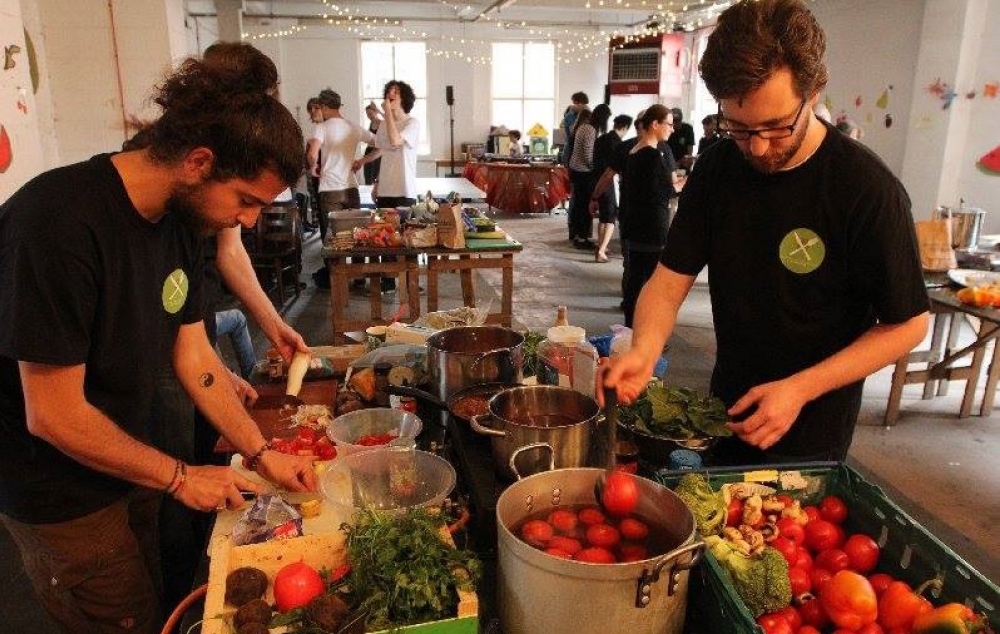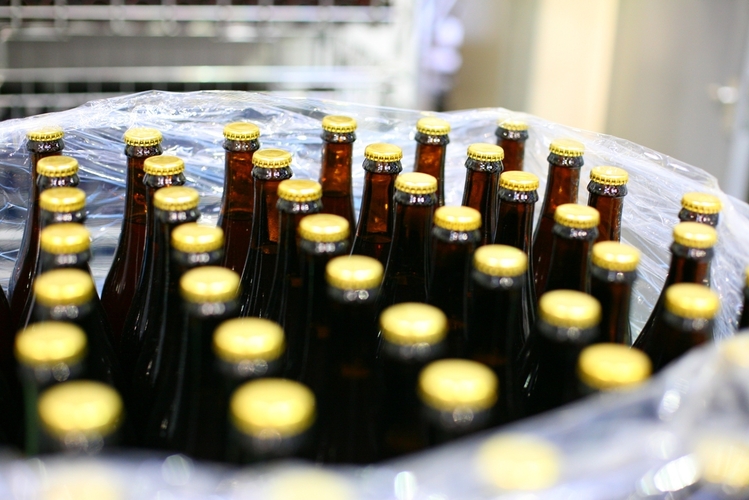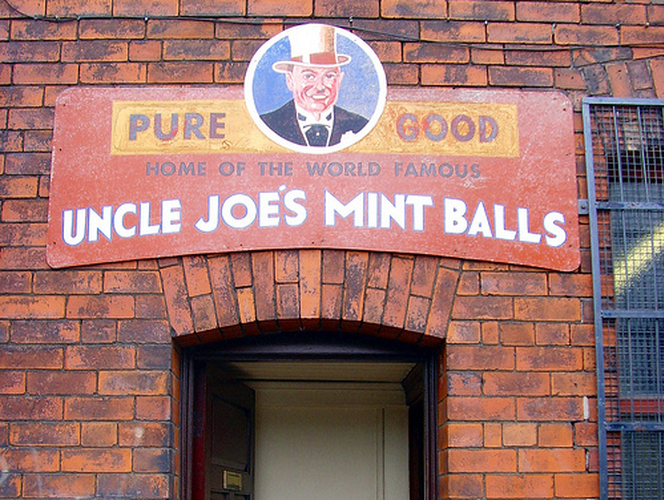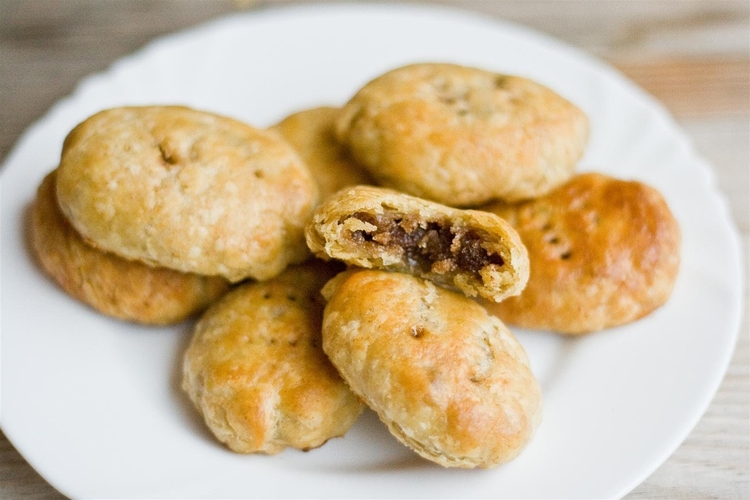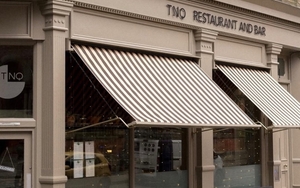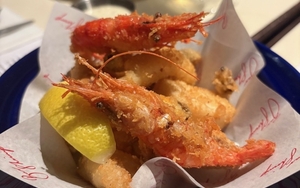A is for Ale, B is for Bury Black Pudding, P is for Pie Barm, of course
Looky here, we’ve put together an alphabetical list of the city's booming food and drink scene. Why? Because where else would we get chance to squeeze the great Mr George Bergier between an Eccles cake and a Manchester Kebab? Exactly...
A is for Ale
Manchester has officially emerged as the cask beer capital of Britain, following a major study into the beer sold in the city’s pubs and bars. In June 2017, The Manchester Beer Audit found 411 different cask ales on sale in venues throughout the Manchester City Council area, beating nearest rival Sheffield - which boasted 385 beers in its last survey - as well as Nottingham (334), York (281), Norwich (254), Derby (213), and Leeds (211). We’ll drink to that.
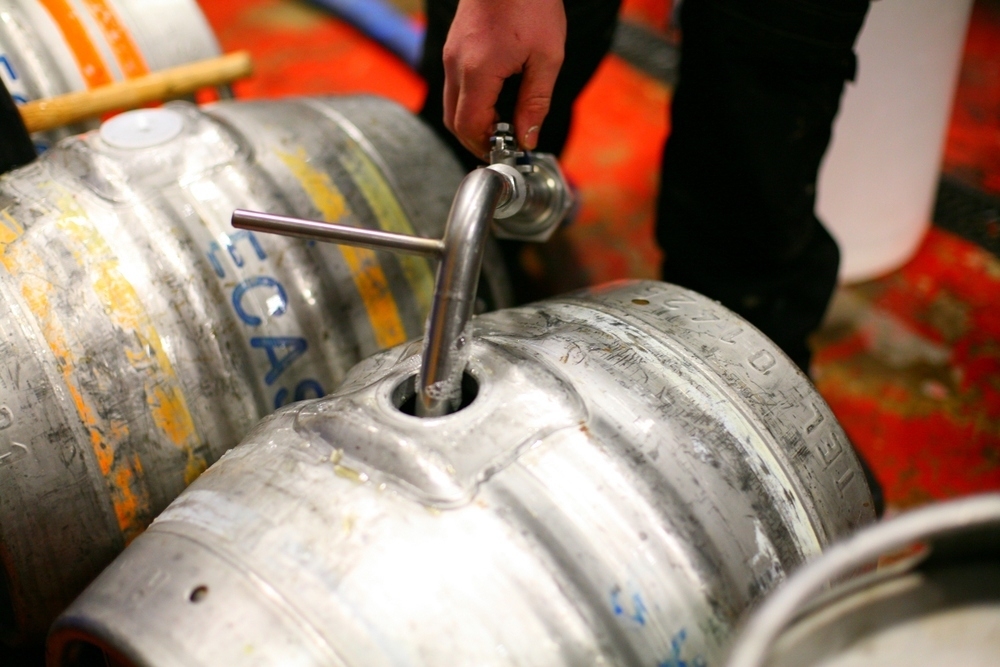
B is for Bury Black Pudding
From relatively humble beginnings, selling blood pudding on a stall in Bury’s famous food market, the Bury Black Pudding Company is now the UK's leading retail black pudding brand. What’s more, it’s been recognised as a nutritionally rich superfood. Naturally high in iron and zinc, it has less than 3% fat and contains barley, a superfood in itself - providing blood glucose stabilisation, cardiovascular protection and cancer prevention, this ancient grain serves as more than just a bulky filler. If you enter Ramsbottom’s annual black pudding throwing competition, it could also be used to help you get a bit of exercise...
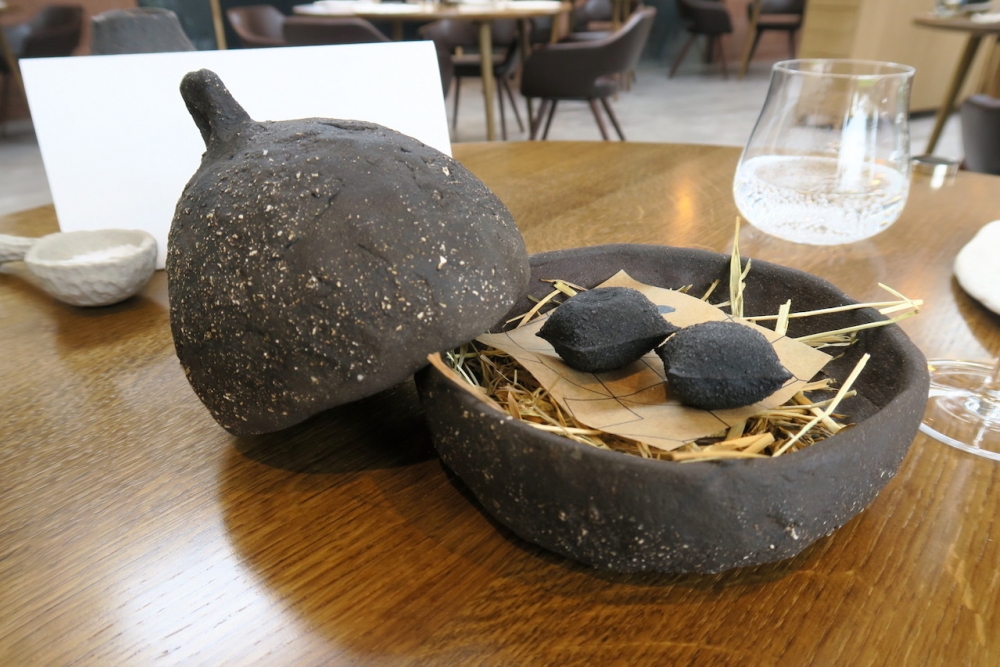
C is for Chinatown
Many major cities have a Chinatown, but Manchester’s is the third largest in Europe. The streets surrounding the famous Faulkner Street archway house some of the city’s best and most long-standing restaurants. Explore a little deeper and you’ll discover fantastic fishmongers, supermarkets and excellent family bakeries selling sweet and savoury buns and pastries still warm from the oven.
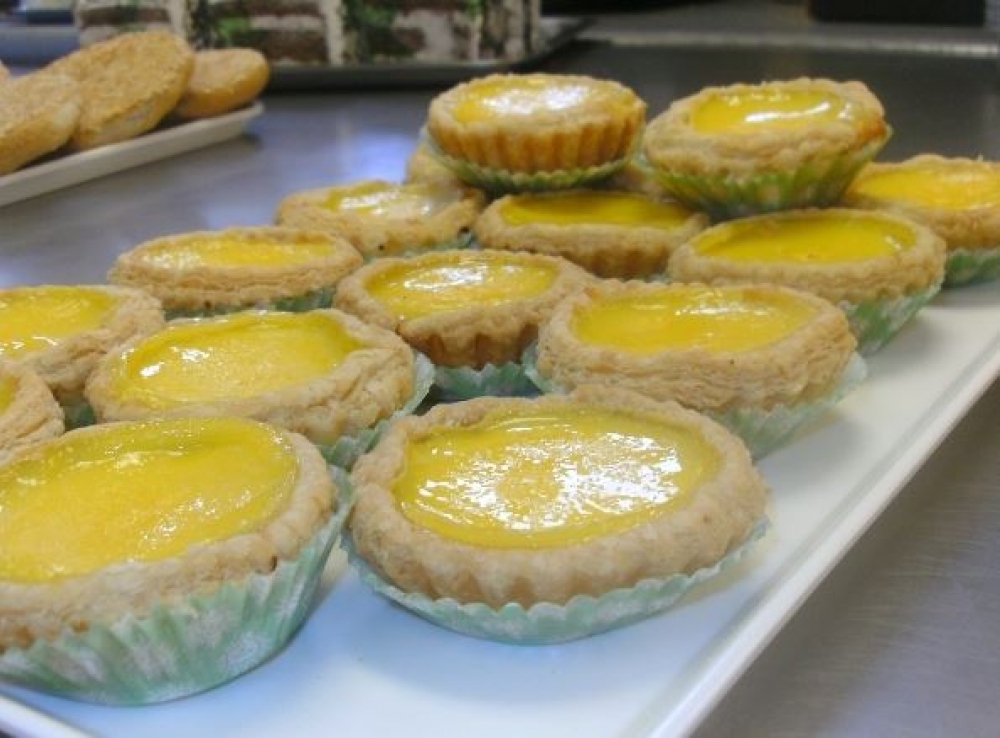
D is for D&D
D&D, the well-heeled restaurant group which operates 34 restaurants worldwide, has followed the successful migration of other London-based brands such as Hawksmoor, Iberica, Randall & Aubin, Bill's, Cote, Byron, Wahaca, Be At One and Comptoir Libanais to Manchester. D&D has been confirmed as the operator to take control of the restaurant, bar and terrace space on the top floor of Allied London’s nineteen-storey project on Quay Street, which is due for completion by the end of 2017. Manchester’s highest restaurant will be another new brand for D&D; as ever, we’ll let you know what it’ll be as soon as we sniff it out.

E is for Eccles cake
This traditional northern sweet treat is a flaky, buttery pastry shell, filled with a mixture of currants, and raisins and sprinkled with sugar. From 1793, James Birch was the first person credited with selling them on a commercial basis from his shop on the corner of Vicarage Road in Eccles, but the recipe dates back much earlier than that. When Oliver Cromwell gained power in 1650, Eccles cakes were banned due to the Puritan belief that they had pagan connections. Nowadays, The Real Lancashire Eccles Cakes Company, based just five miles outside Eccles, produces the leading brand of handmade Eccles Cakes, still using the Edmonds traditional family recipe. They can be found in all leading supermarkets, delis and local corner shops, and the company even exports to Europe and America.
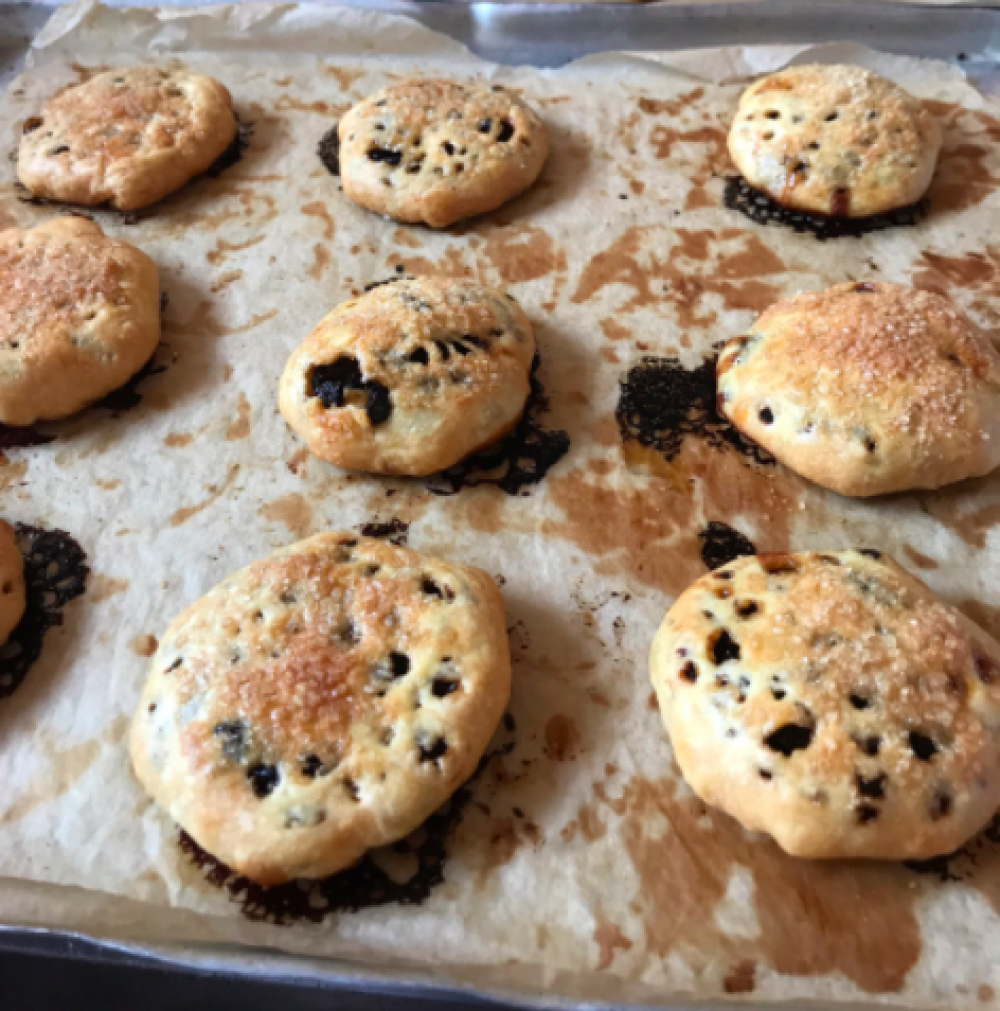
F is for Food Festivals
Nowadays Manchester hosts a festival celebrating all manner of cuisines including Spanish, Thai, Italian and even Gobefest, an official celebration of Transylvanian Hungarian food. It’s not just all about food either, there are festivals celebrating almost every type of liquid refreshment too (see here.) Manchester’s official Food and Drink Festival (MFDF) held every September and October for two weeks, is celebrating its 20th Anniversary this year; with chef demos, street food stalls, citywide events and an awards ceremony. Bolton’s annual August Bank Holiday Food and Drink Festival is also worth a visit, with a great line-up of celebrity chef demos and food events.
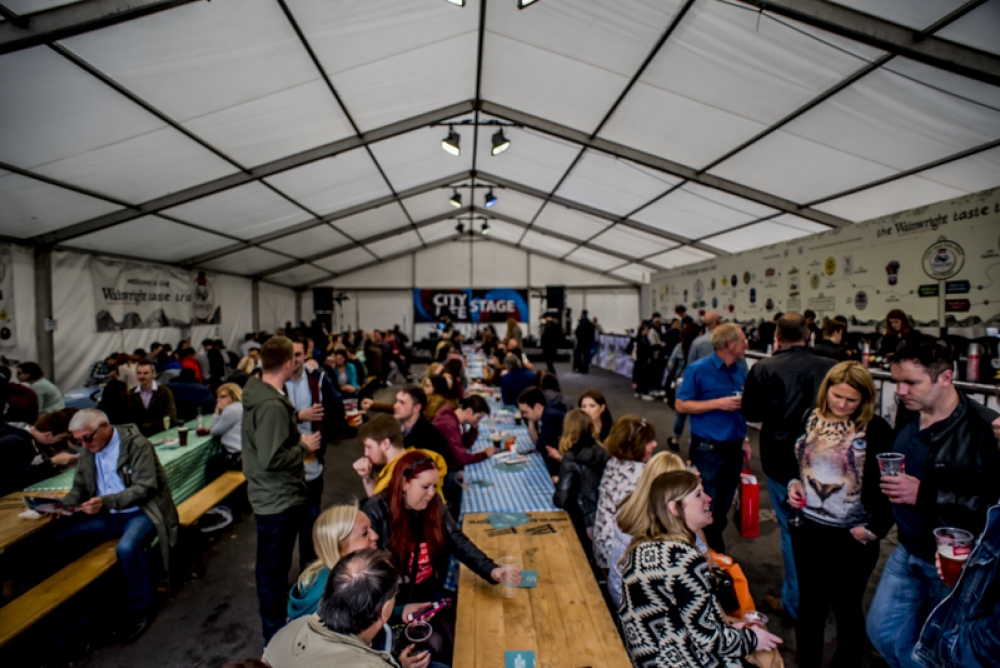
G is for George Bergier
Northern wine royalty; past chairman - The Guild of Sommeliers Manchester, Chambellan – Ordre des Coteaux de Champagne and Grand Maitre – Chante Flute Preux de Manchester, the city is lucky to have this superstar sommelier, who has been presiding over the wine cellars of The Victorian Chop House Company since 2007. Drinks industry bible Imbibe magazine gave him its Industry Legend accolade in their 2017 Personality of the Year awards. Check out what wine-matching nous (and amazing bin-ends) this veteran Polish-born sommelier brings to the table at Mr Thomas’s, Albert Square and Sam’s Chop House. With 32 wines available by the glass, it's the widest selection in the city centre.
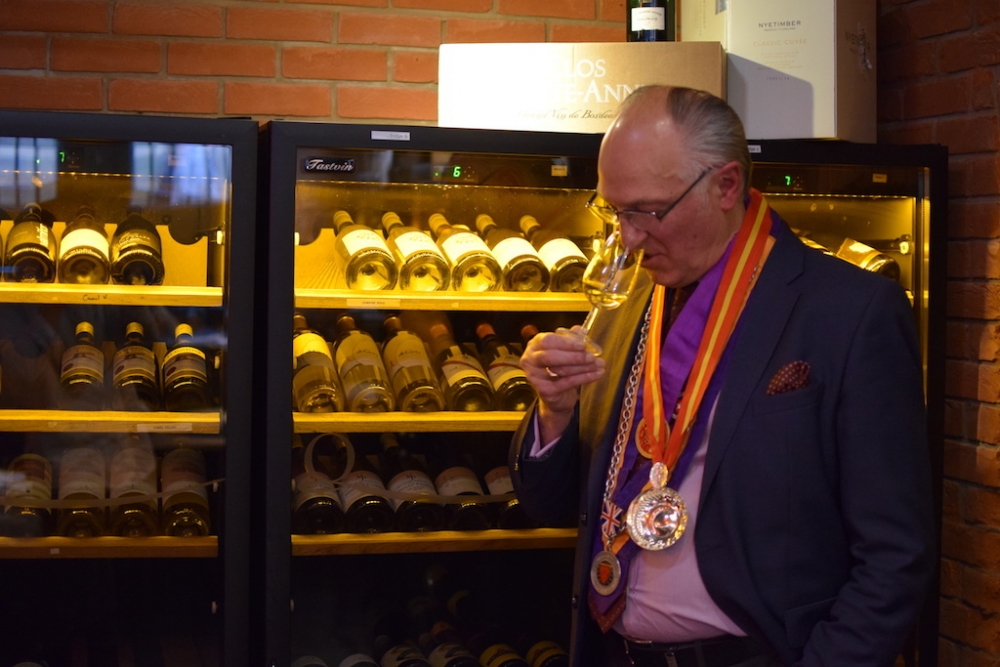
H is for Hot Pot
Arguably made world-famous by Betty Driver, the fictional Corrie character who made a popular version in the Rovers Return, the hot pot is essentially a hearty slow-cooked lamb or mutton stew with onion, topped with a layer of thinly sliced potatoes. Many Lancashire and Greater Manchester regional variations add vegetables such as carrot, turnip or leeks and some even throw in a few lamb kidneys. Pickled red cabbage or beetroot is the traditional accompaniment. The origins of this long-standing dish are uncertain, but it’s likely that the 'hot pot' refers to the heavy pottery dish used to cook casseroles in northern Britain. In the initial stages of industrialisation and urbanisation, because they often lacked their own cooking facilities, housewives would carry a pudding or stew to the village baker's oven and leave it there to cook.
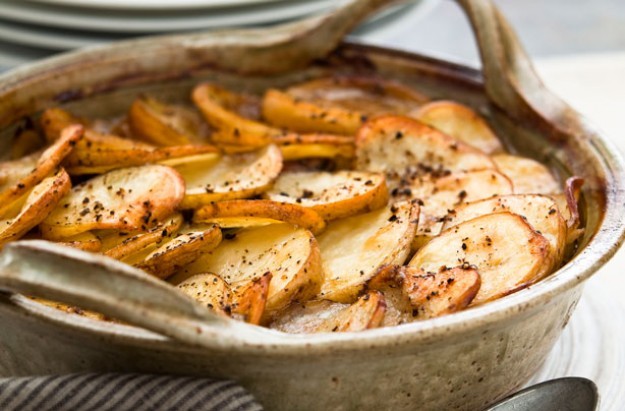
I is for Indy Man Beer Con
With up to 200 of 'the finest beers from the best breweries' and more than 80 taps serving both cask and keg, the Independent Manchester Beer Convention (Indy Man Beer Con/IMBC) has proven to be a much-anticipated annual event on the ale lovers' calendar. This showcase of progressive breweries from the UK, Europe and USA will take over the stunning surrounds of the Grade II listed Victoria Baths for its sixth year. Expect a multi-sensory, headlong, hop-forward beerganza.
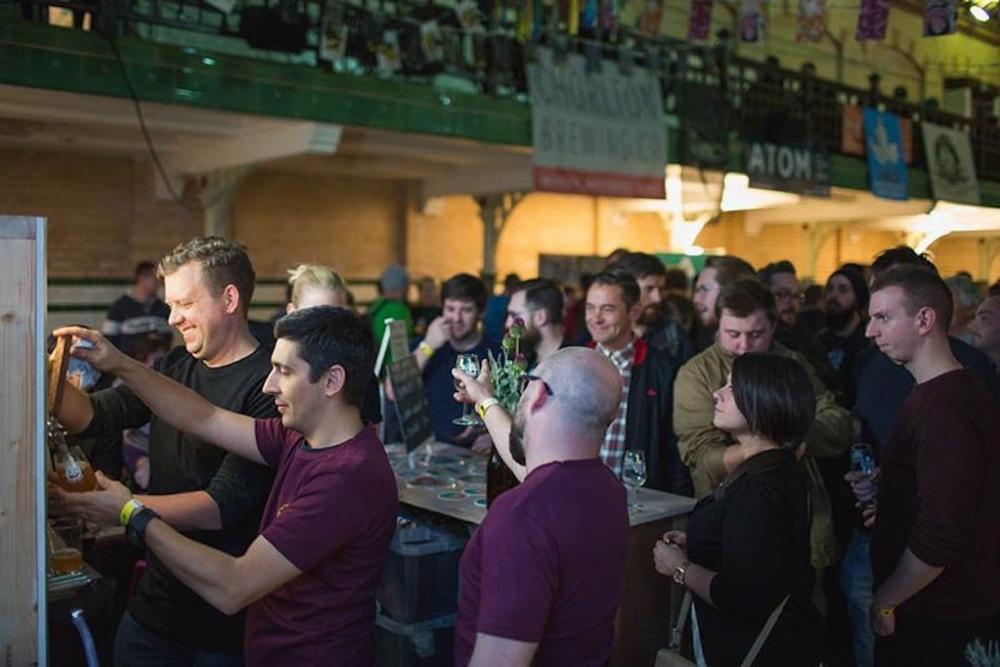
J is for Jam
Duerr’s is the oldest family-owned jam maker in England. They’ve been making quality preserves to their family recipes for 135 years and, what’s more, they’re based in Wythenshawe. From sunny citrus conserves to fruit-filled jams, marmalades, peanut butters, curds and classic condiments, Duerr’s has grown from Fred and Mary Duerr’s homegrown business into a global brand. The family has also contributed to Manchester’s world-renowned technical innovations, from the invention of periscopes used in World War One to creating innovative packaging techniques including the Orbit™ easy-open lid, Europe’s first squeezy jam bottles and even the world’s first bake-stable jam (rhubarb and custard).
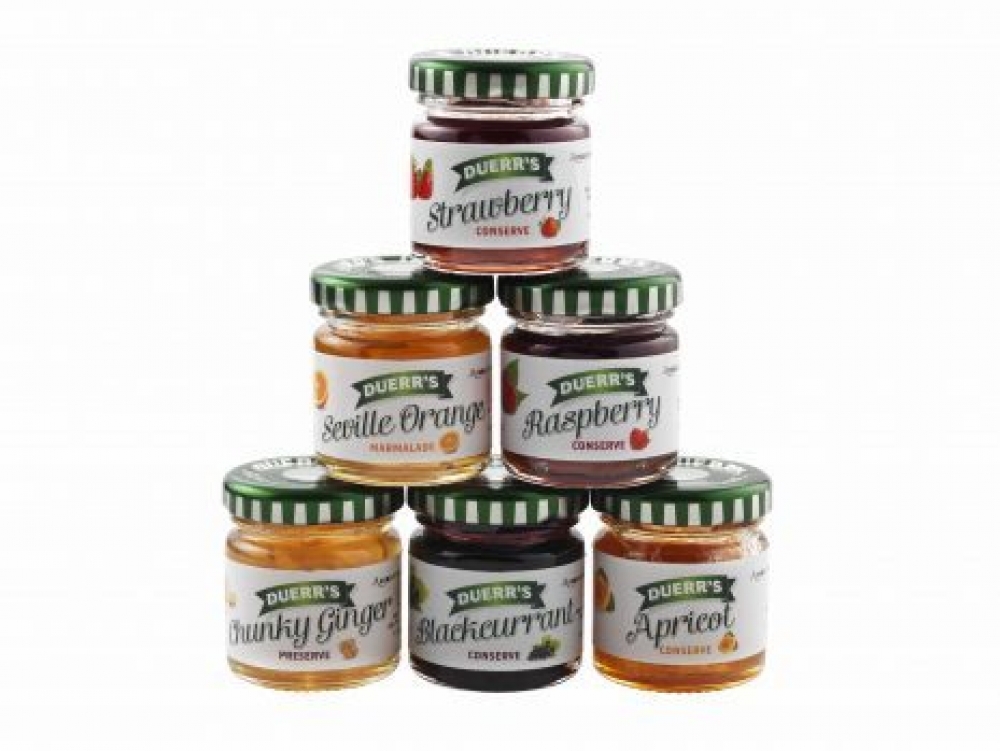
K is for Kebabs
Yes, we know the kebab was probably invented in the Middle East during ancient times and we’re not going to shoe-horn in a tenuous link to late night student fare. The reason we’ve included the humble kebab is because someone has recently gone and invented a Manchester version. The Refuge, the restaurant within Manchester’s Principal Hotel (formerly the Palace Hotel on Oxford Road) recently got together with Mancunian chef Robert Owen Brown to produce the Manchester Kebab; containing slow-cooked lamb shawarma, salad and Vimto sriracha, all wrapped in a, er, Yorkshire pudding.
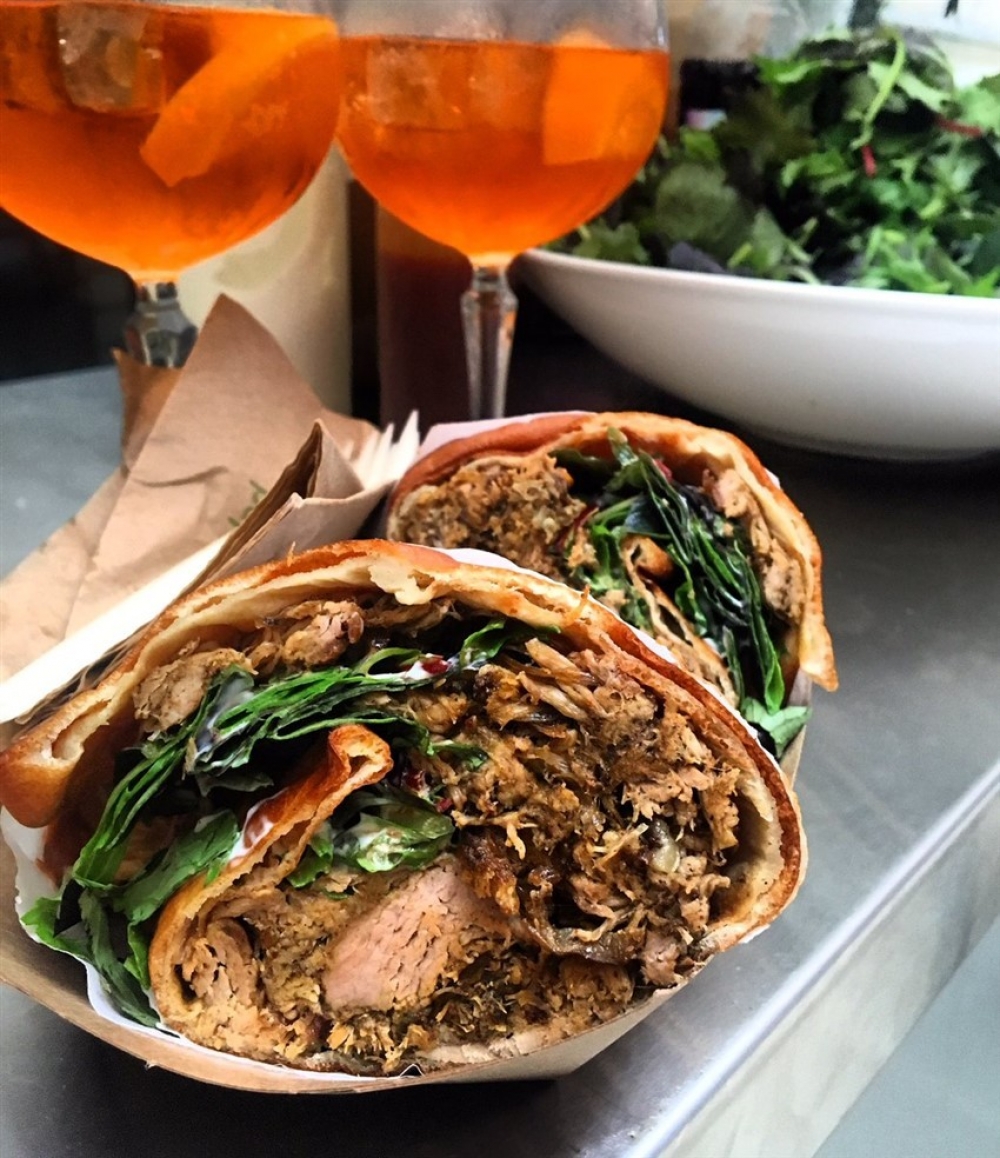
L is for Living Ventures
This company began in 1993 with one venue on Deansgate, JW Johnson’s restaurant and bar, opened by company founders Jeremy Roberts and the late Tim Bacon. Now, 24 years later, the successful group incorporates several sub-brands, bars and restaurants including Grand Pacific, Australasia, Manchester House, Blackhouse, Artisan, Gusto, Red Door, The Alchemist and The Club House across the UK. They have been responsible for training and employing thousands of people in hospitality and are one of the region's brightest success stories.
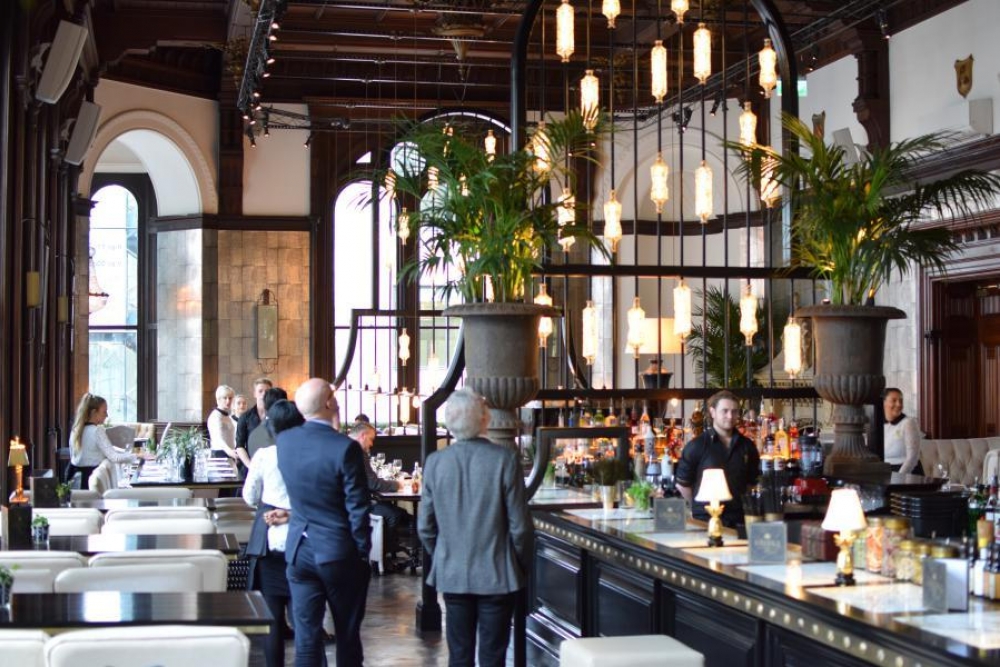
M is for Mackie Mayor
The team behind Altrincham’s award winning market have been working with Muse Developments over the last couple of years to convert the historic Grade II listed former meat market, aka ‘Mackie Mayor’, into a contemporary, two-storey Northern Quarter market space. Bench-style seating for around 400 people will be surrounded by various market counters and kitchen units selling produce, street food, coffee and booze. Traders already confirmed for the project include: Fin Fish Bar, run by Alti market’s Tender Cow, Little Windowfrom the people behind Honest Crust Pizza, Black Jack Brewery, Reserve Wines, Wolfhouse Kitchen and French rotisserie chicken specialists Nationale 7. They are scheduled to re-open in mid-September. Return of the Mack...
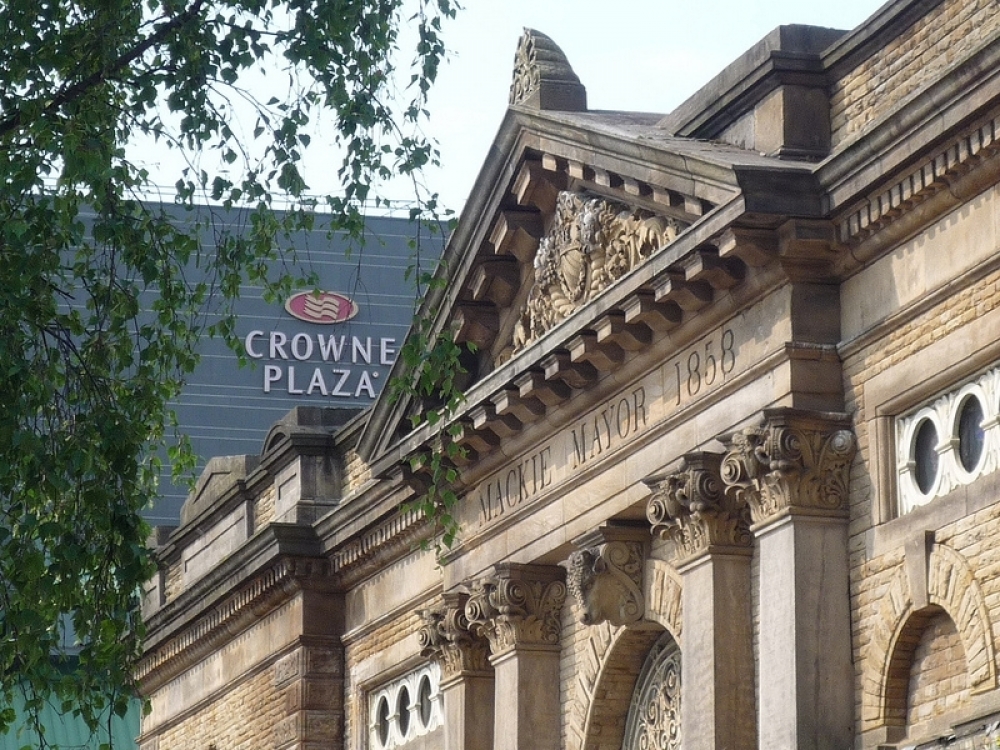
N is for New openings
Thanks to the perpetual onslaught of new opening news and our attempt at trying to keep up with it all, our poor writing team often has to go home and soak their tired fingers in an ice bath. Read our latest lowdown here, but among the 25+ places we know about, who are planning to open in Manchester by spring 2018, include several big wig London-based companies (D&D, The Ivy), an ocean of coffee and cocktails, basement bars, suburban independents making the move into town (Sugo) and even some street food vendors branching out into bricks and mortar (Eat New York, Hip Hop Chip Shop) plus an opulent pan-Asian restaurant complete with enormous suspended wingless dragons. Keep an eye on our New Opening section here.
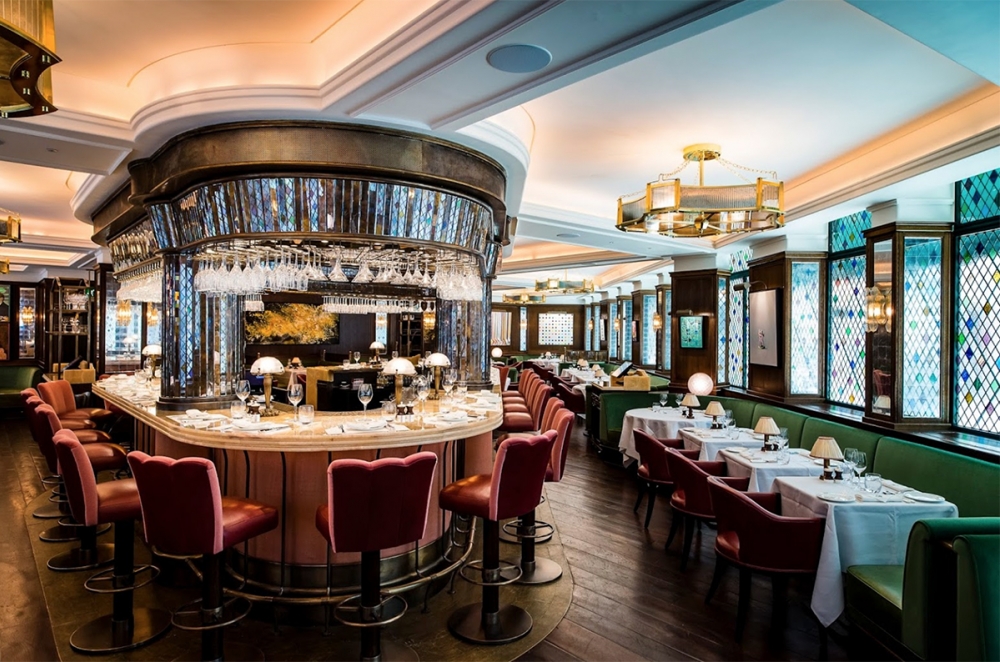
O is for Oast House
After recently securing a long term lease from Manchester City Council, The Oast House, jointly owned by property developers Allied London and New World Trading Company, is set to stay. Since opening in Spinningfields in 2011, this hugely popular food-boozer was only ever meant to be temporary, but instead of being demolished, it is to undergo a dramatic redevelopment by Barcelona-based landscape architects Arriola & Fiolcome. By January 2018 its makeover will incorporate two permanent bars, heated canopies and a raised outdoor ‘fire pit’.
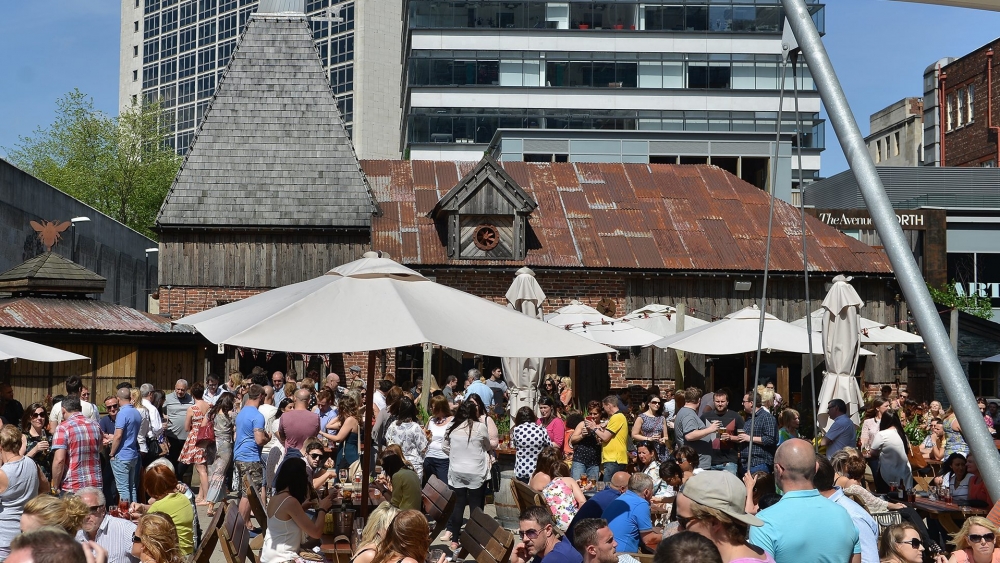
P is for Pie Barm
Wigan has its own culinary micro-culture where vinegar comes with everything and double carbohydrates are the norm. The Wigan Kebab is not just a meat and potato pie in a barm, but a way of life. Stand anywhere in Wigan and you’re never more than 100ft away from a pie shop apparently. The bread barm has a triple function; it protects your hands from the heat of the pie, soaks up any gravy and adds an extra layer of insulation to protect against wet Wigan winters.
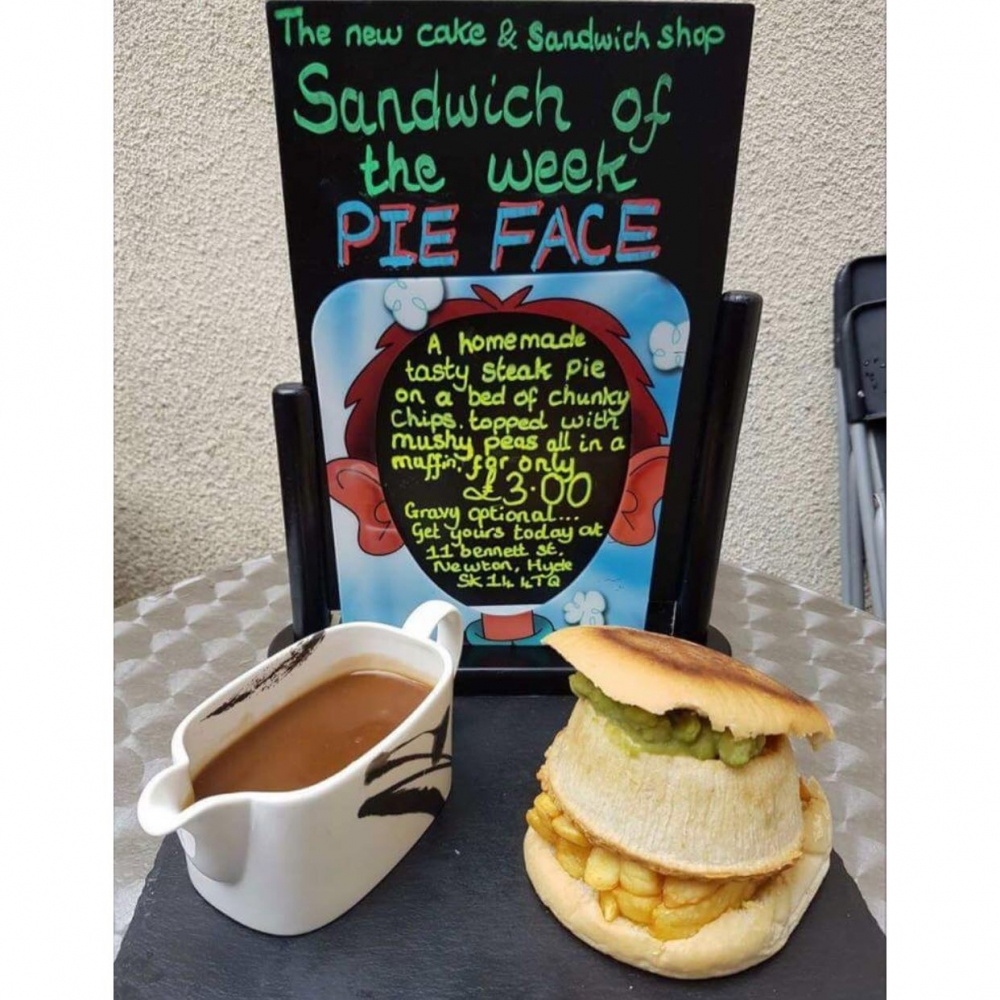
Q is for Queue
There are a few places where you have to be prepared to queue to get good food and drink in Manchester. Popular neighbourhood gaffs such as Rudy’s Pizza or Seoul Kimchi which operate a no booking policy often have customers queuing out of the door, as do more niche venues like Chaology Japanese tea bar. Even the small Pollen Bakeryin an archway behind Piccadilly train station has a line of people forming on Saturday mornings for fresh bread, pastries and speciality croughnuts.
Also worth a mention is the queue of London based operators waiting to open a branch in Manchester. After working from their Soho-based venue for twenty years, seafood celeb haunt Randall and Aubin chose Manchester as the venue for their second branch, and as we mentioned above, D&D and The Ivy are patiently waiting for their Manchester venues to go up in Spinningfields, while capital coffee chops such as Black Sheep Coffee and Department of Coffee and Social Affairs also have plans to open here in the next month.
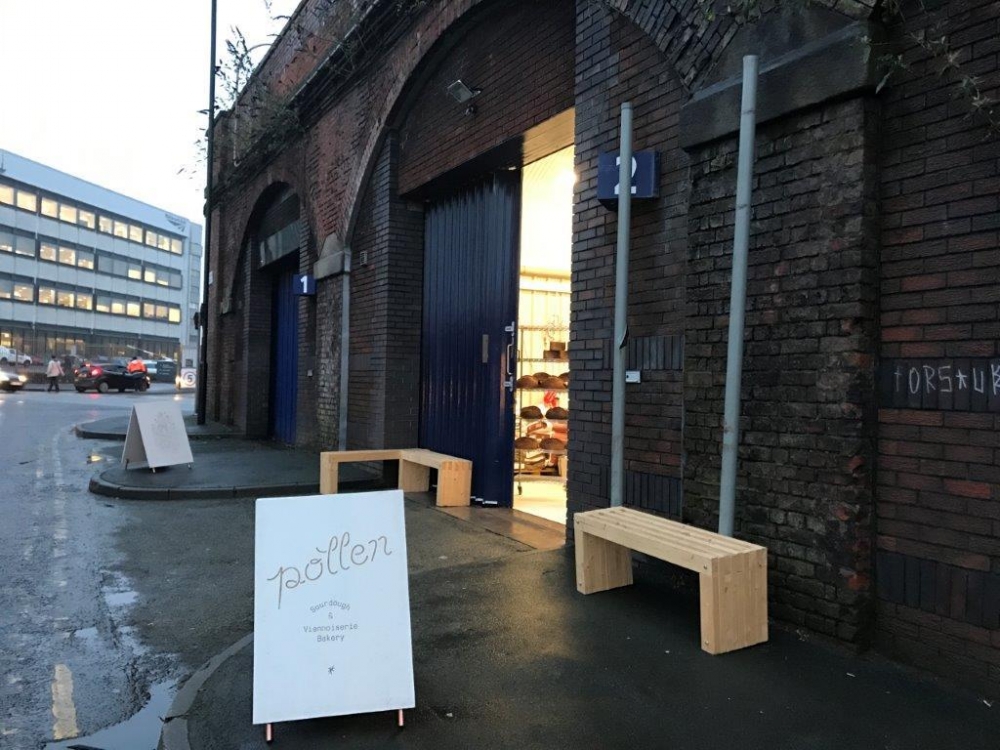
R is for Rice 'n' Three
It seems that this famous institution is uniquely Mancunian; small canteen-style outlets which offer rice topped with three curries chosen from a selection of six or so. The traditional curry caff sprang up from a need to feed the hundreds of local garment industry workers who began arriving from the Indian sub-continent. You’ll find a smattering around the Strangeways area, but the beating heart is in and around the Northern Quarter where you’ll find boltholes where you can enjoy slow-cooked home-style curries, made from scratch.
Customers line up to choose from that day’s specials before adding their own garnish (usually raw onions, green chillies, fresh shredded ginger and chopped coriander) and finding some space to eat it. Each caff has a daily-changing set menu and many curry caff enthusiasts have their favourite day of the week at places like This & That, Al Faisal, Yagdar, Kabana and Maharba. All make fantastic chapatti, roti or naan breads too. Expect a delicious, no-frills feed for around a fiver and you’ll never look at a Meal Deal in the same way again.
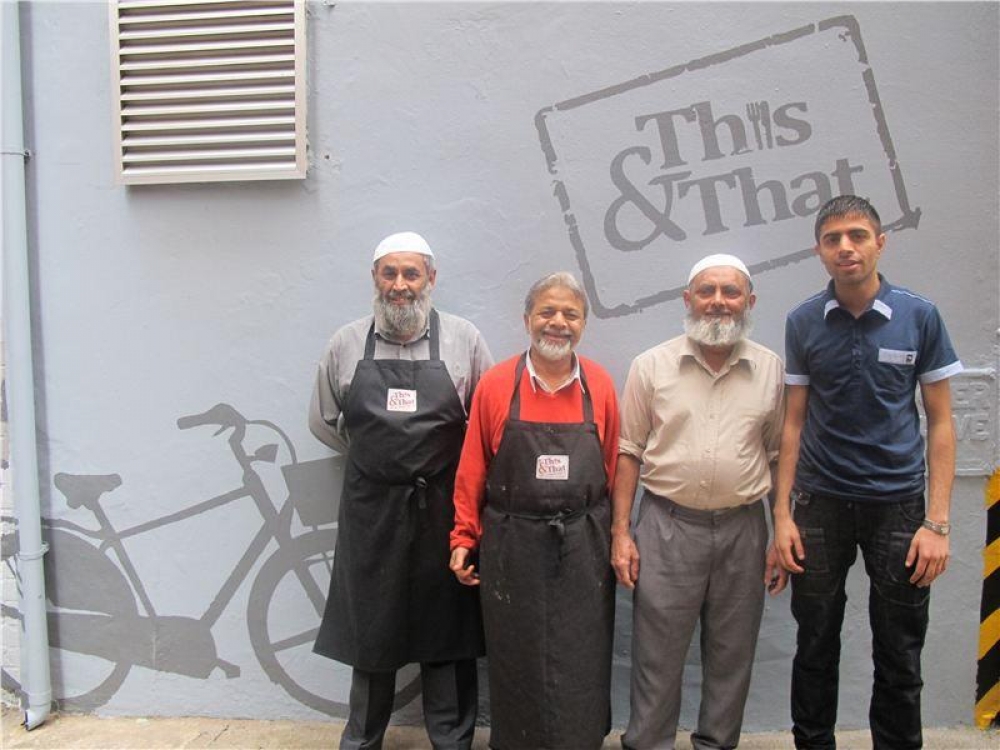
S is for Street Food
Informal dining at festivals, events and markets has improved tenfold over the past few years and Manchester’s street food scene is absolutely buzzing right now. You can find everything from triple layered artisan burgers that’ll drip from wrist to elbow, to virtuous vegan dishes and food from almost every imaginable culture; Mexican, Malaysian, Taiwanese, Turkish and so on. Here's sixteen local street food traders (here and here) you should keep an eye out for.
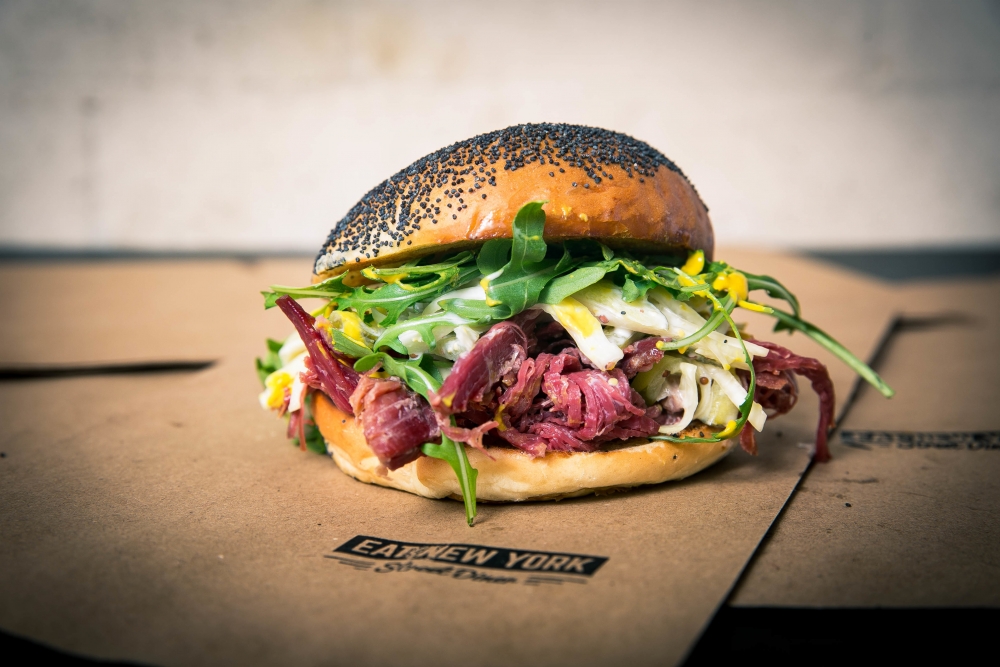
T is for Manchester Tart
Apparently this sweet treat is based on the Manchester pudding, an earlier recipe by Mrs Beeton, the Victorian cookery writer, but we’ve always been a little confused as to what makes a shortcrust pastry shell, spread with raspberry jam, custard and coconut flakes, topped with a Maraschino cherry, particularly Mancunian. Some people even add a layer of thinly-sliced bananas under the custard. Perhaps it harks back to our mercantile history when goods from all over the world made their way over here. But then who cares, it's ace.
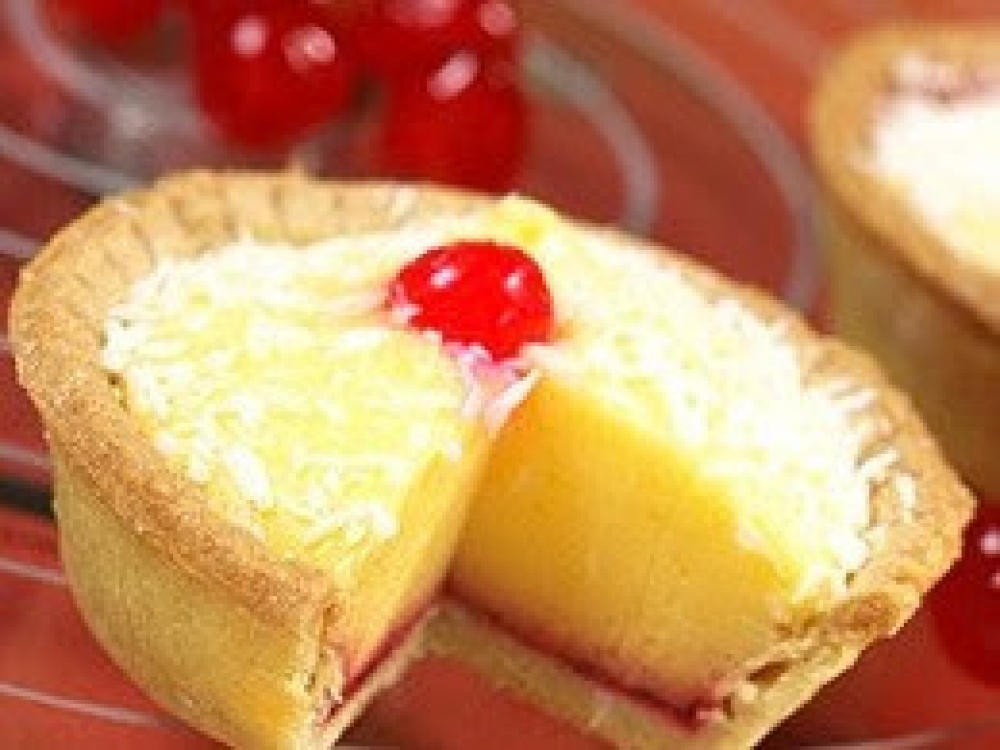
U is for Uncle Joe’s Mint Balls
Back to Wigan again, and apart from being famous for vinegar and pie barms (see above), it is the home of the famous peppermint sweets. Starting in 1898, William Santus and Company is now a fifth generation family confectionary business who make and ship out a range of traditional sweets all over the world. The early mint balls were originally made by William’s wife, Ellen, before production moved to a factory near Wigan’s Wallgate railway station in 1919. Their distinctive packaging, a sealed can with a logo of a smiling man in a top hat, is instantly recognisable and on 16 February 2011, the Dorning Street factory produced its two-billionth Uncle Joe's Mint Ball which was encased in resin and placed on display at the Museum of Wigan Life.
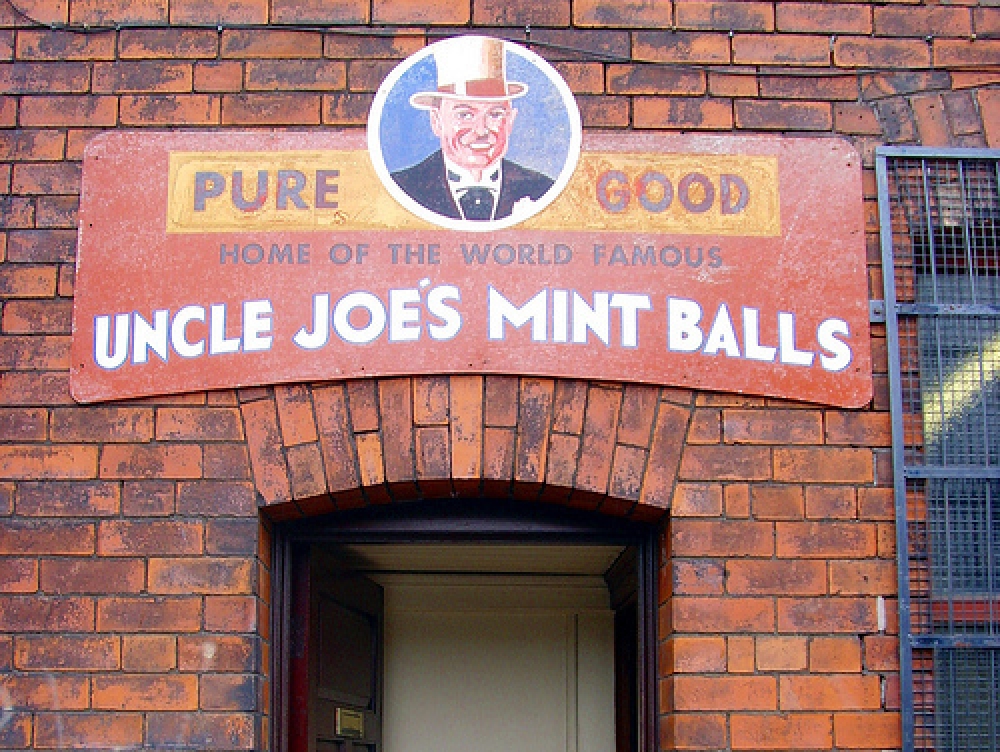
V is for Vimto
What would this list be without our trusty Vimto? The original recipe was invented in 1908, in Manchester’s Granby Row, by John Noel Nichols from Blackburn. It was first manufactured as ‘Vim tonic’; a healthy, non-alcoholic cordial containing grape, raspberry and blackcurrant juice flavoured with herbs and spices. It was so successful that they soon outgrew Granby Row and moved to a warehouse on Chapel Street Salford in 1910, then to Old Trafford in 1927 and finally to a state of the art plant in Wythenshawe, in 1971. Vimto is currently produced by Cott Beverages in Leicestershire and Yorkshire, but there’s a sustainable oak sculpture by Kerry Morrison entitled "A Monument to Vimto" marking the original spot on Granby Row.
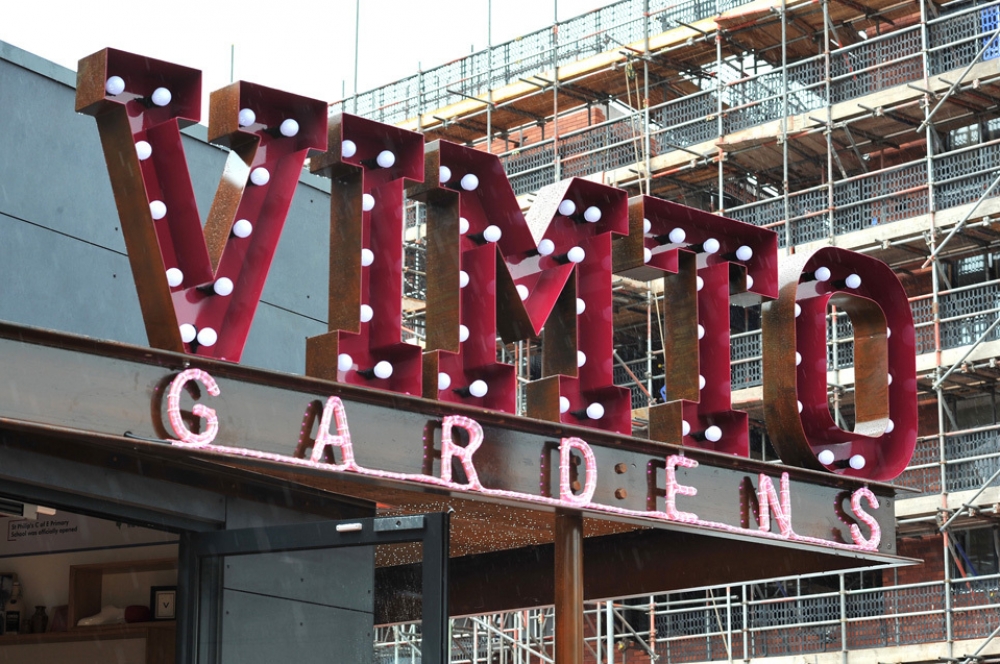
W is for Warburtons
Warburtons family bakers was founded in Bolton in 1876 and the company now has a whopping 24% share of the UK bread market. After embarking on a significant expansion program in the late 1990’s, Warburtons products are currently the second-best selling food and drink brand in the UK after Coca-Cola - putting it ahead of famous British brands such as Cadbury's and Walker's. For much of its history Warburtons only had bakeries based in Lancashire, but due to the demands of mass production from supermarkets based all over the country, and the manufacture of bread, rolls, crumpets and potato cakes etc, they have opened new plants all over the UK. Not bad considering it all began from Ellen and Thomas Warburton’s small grocery shop.
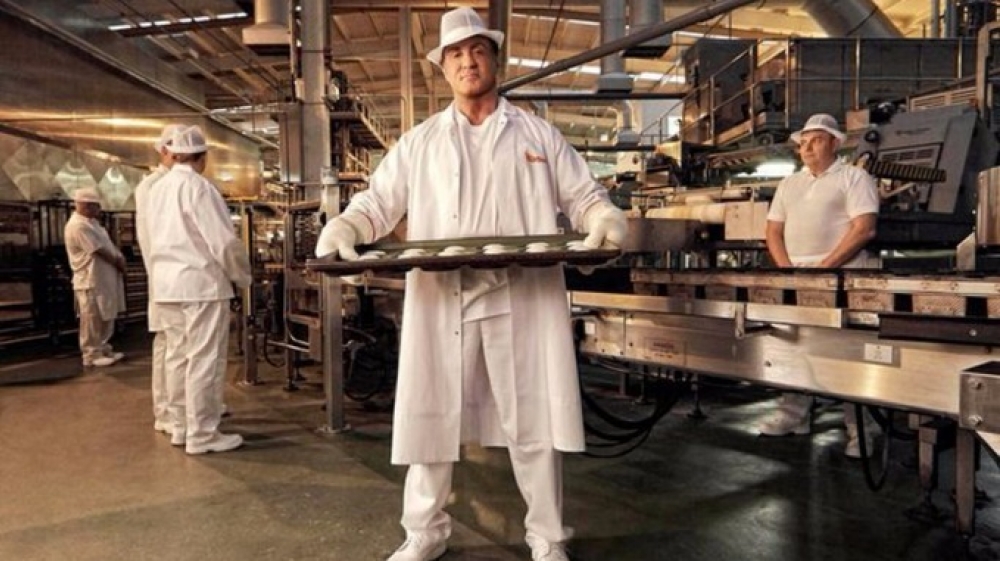
X is for PintXos
Ok, so the X is not at the beginning this time, but it still counts thanks to Greater Manchester’s recent wholehearted embrace of Spanish and Catalonian cuisine. In the Basque Country, you are never served tapas, only 'Pintxo', from the verb 'pinchar', or 'to pierce' – usually with a cocktail stick. Some of the best can be found in Ramsbottom at Baratxuri (see, those Catalonians have more X’s than Katie Price) the second venue for the folks behind Levanter in the same town.
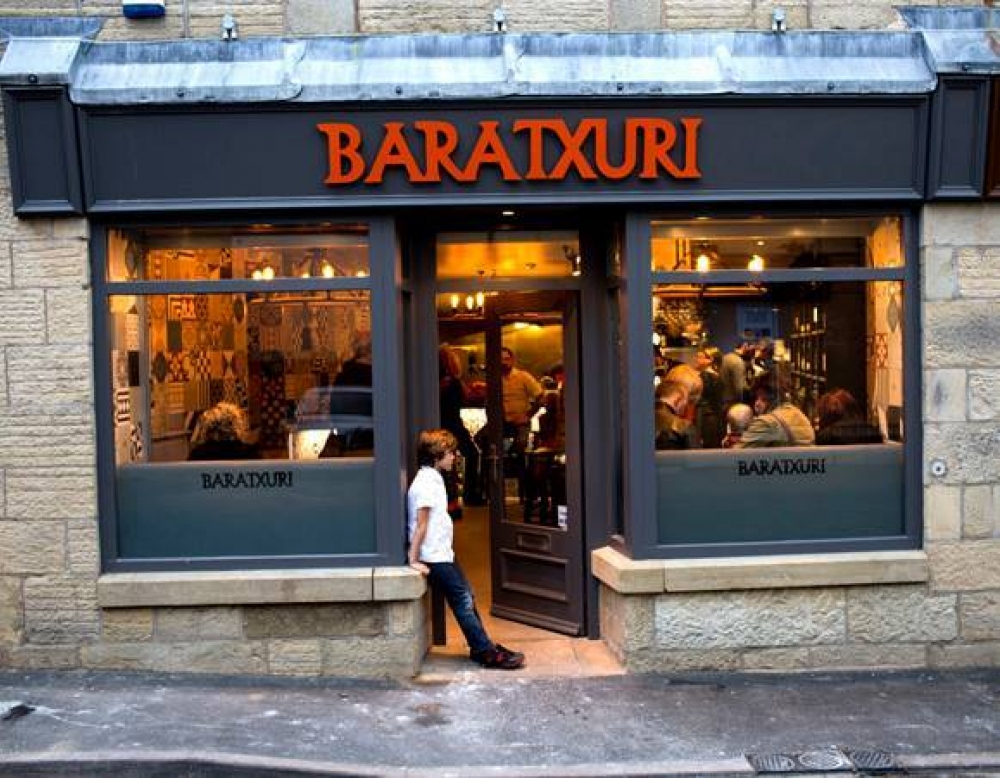
Y is for Yeast
We’re not short of fantastic bread in Manchester but as opposed to the mass-produced, fast track stuff spewed out by the market leader (see W above,) this time we’re talking slow-proved sourdough using only specially selected flour, salt and water. The yeast in this case is more the natural airborne variety and some of the best bread in the region can be found courtesy of artisan producers such as Pollenbehind Piccadilly, Trove in Levenshulme, Blawd Bakery below Common, Campanio in Ancoats or Flour, Water, Salt, further away in Macclesfield.
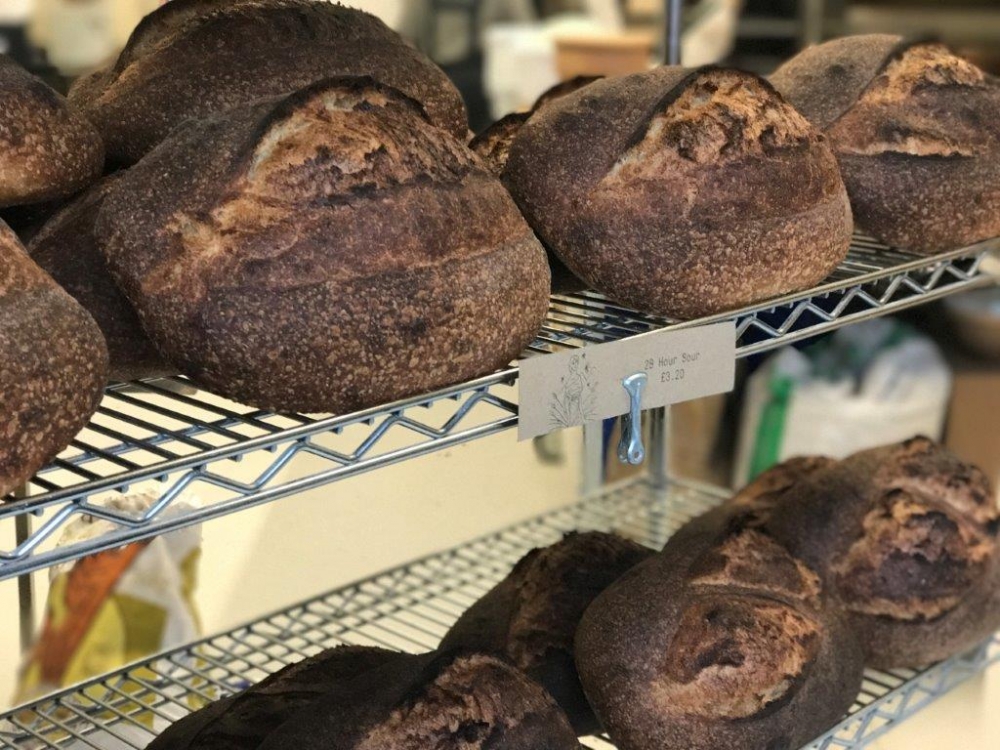
Z is for Zero waste
Confidential predicts that this will be the next big thing in hospitality, with restaurants and their customers becoming more aware of the need to reduce food waste. The Real Junk Food Project Manchesterintercepts waste food and makes nutritious meals for everyone, on a pay-as-you-feel donation basis and is poised to open their first permanent venue on Oxford Road. We’ve also just discovered ‘Too Good To Go’, a revolutionary new app which connects restaurants to customers to prevent any leftover food from being thrown away by offering it at a vastly reduced price at the end of the day.
